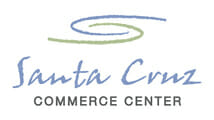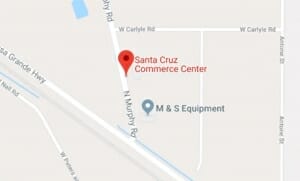Are the Savings Worth the Effort of Locating on Tribal Land?
Many site locators and facilities management executives know that locating on tribal land can mean substantial savings on taxes and operating costs. Still, many perceive that working with a tribe is a long, arduous process.
However, that’s not the view of Phil Entz, a 21-year veteran of working with tribes in the capacity of project and property development management. As the Property Manager for the Ak-Chin Industrial Park Board which oversees the tribe’s Santa Cruz Commerce Center, the former Phoenix Regional Airport, and an interstitial property known as the “Bunger Property,” Entz maintains that leasing at Ak-Chin is not much different than leasing off-reservation. “The steps to obtaining a lease include pre-qualifying, executing a letter of intent, and agreeing on final lease language.” says Entz. “In some ways, the process is easier because all negotiations are in-house as are all approvals. The Lessee works with one point of contact—the Industrial Park Board—and the Board can accelerate solutions and approvals with other Community Departments and entities.”
Tribal land cannot be bought and sold because it is held in a government trust by the federal government. If a tribe wants to build a business or house, the Bureau of Indian Affairs (BIA) must first approve a lease or mortgage. However, in December 2011, the Obama administration proposed changes to the approval process that would speed the approval process timeframe. Under the new rules, if the BIA did not approve leases for commercial and industrial development within 60 days, they would be automatically approved.
Even so, Entz describes the BIA’s involvement as “minor” and primarily only in the initial lease process. “Since the property being leased is Federal Reservation Land, the BIA is a signatory on the lease,” says Entz. “However, they are not involved in the initial negotiations, nor do they tend to be involved in the day-to-day operations of the leases or the Lessor/Lessee relationship.”
In his role as Property Manager, Entz pre-plans improvements, negotiates leases, handles tenant concerns and represents the Board in their coordination with economic and development entities. “I think the greatest challenge for a potential tenant is appreciating the advantages of an on-Reservation lease,” says Entz. “Part of my job is to help them understand the processes and answer any questions that arise. If I can’t help on a specific issue, there are a myriad of other resources within the Community that can assist.”
The current Ak-Chin Industrial Park Board, chaired by Charles L. Carlyle, is committed to being proactive and responsive to tenants at its properties. “In any tenant situation, there are bound to be issues that arise from time-to-time,” says Carlyle. “We regularly assist tenants in overcoming any glitches that might happen. We really see ourselves as a partner in our tenants’ success.”
This partners-in-success model has been true for Hickman’s Family Farms Maricopa facility. They have been a tenant of Santa Cruz Commerce Center since August 2002. “Ak-Chin has been instrumental in our growth and expansion in Maricopa,” says Glenn Hickman, Hickman’s President. “They continually team with us to find business solutions that are mutually beneficial.”
Entz finds working with Ak-Chin to be a distinctive experience. “I know there’s been some hype about lease problems at some other reservations, but Ak-Chin has enjoyed great relationships with its tenants,” he said. “They are extremely proactive in economic development, and in this economy, that’s not just different than other tribes, it is different than most municipalities, including cities, counties and entire regions.”


